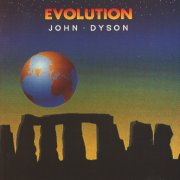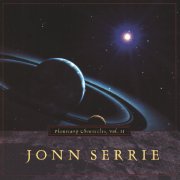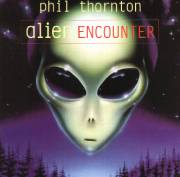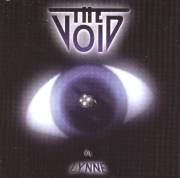SCIENCE
FICTION IN MUSIC
By: Jorge Munnshe
 The acceptance of science
fiction, fantasy and terror within the different media varies a lot. Comic books and video
games are the ones who respect most these styles. Literature, the cinema and the plastic
arts tolerate them but still are reluctant to consider them as "serious"
cultural values within their structures, especially literature. The most difficult vehicle
has traditionally been music. So much so, that even the idea that there has never really
existed a "fantastic" current within music has usually been promoted.
The acceptance of science
fiction, fantasy and terror within the different media varies a lot. Comic books and video
games are the ones who respect most these styles. Literature, the cinema and the plastic
arts tolerate them but still are reluctant to consider them as "serious"
cultural values within their structures, especially literature. The most difficult vehicle
has traditionally been music. So much so, that even the idea that there has never really
existed a "fantastic" current within music has usually been promoted.
Also, the connection between literature,
cinema, comic books and plastic arts is quite clear, whereas music dwells in some kind of
limbo, away from those other vehicles of artistic expression. Statistically, amongst all
SF music fans, a vast majority are also fans of SF literature. The other way round, rather
less, mostly because of ignorance rather than due to a dislike for this kind of music.
This ignorance of Fantastic Music, or Space Music, as it is most commonly called, is
chronic in SF fans. But we must acknowledge as well the fact that most of the blame should
fall onto the cinema, an ideal vehicle to popularize SF music in the form of soundtracks
of the movies of the genre. Unfortunately, SF cinema has not always adhered to SF music,
usually preferring for the great movies, the productions of a high cost, the typically
conventional orchestral soundtracks, instead of authentically innovative or futuristic
music. The reason why such thing happens is that, amongst traditional composers, there has
always existed a certain contempt towards innovative or synthesizer music since they tend
to consider it as scarcely serious, just like conventional writers do not accept SF
Literature as serious, much less worthy of belonging to the "Official Culture".
Luckily, this situation is changing for good. Nevertheless, with regard to music,
electronic music continues to be rejected in certain SF milieus. Few people are aware that
many science fiction movies have two soundtracks: an electronic one for some countries,
and another orchestral one for other countries, as if the latter hadn't reached a certain
degree of cultural and social maturity.
 The fantastic or science
fiction genre within music has always been hand-in-hand with electronic music. What's
more, to take an obvious example, Hugo Gernsback, who invented the name "Science
Fiction", worked in musical electronics and even designed an electronic musical
instrument controlled with a keyboard. In other words, and although, of course, there
always are exceptions, speaking about "Science Fiction Music" almost always is
the same as speaking about Electronic or "Cosmic" music.
The fantastic or science
fiction genre within music has always been hand-in-hand with electronic music. What's
more, to take an obvious example, Hugo Gernsback, who invented the name "Science
Fiction", worked in musical electronics and even designed an electronic musical
instrument controlled with a keyboard. In other words, and although, of course, there
always are exceptions, speaking about "Science Fiction Music" almost always is
the same as speaking about Electronic or "Cosmic" music.
Imagination is the unifying nexus. In
electronic music we find sounds that do not exist in nature, sounds which are impossible
to create with acoustic, non-electronic means. With these irreal sounds an infinity of
styles can be produced, and - even if many of them are completely conventional, the
avant-garde of music is by all means found within the electronic universe, just like the
avant-garde of literature is mostly found in SF though within it there also is a
super-conventional type of literature as well.
There are some people in the literary world
who have a clear idea that there is a very definite, specific kind of music that connects
with their literary creativity. For instance, Arthur C. Clarke doesn't hide his liking for
electronic music and claims that listening to it while he works is a source for
inspiration to him (Jean Michel Jarre and Vangelis are among his favourite composers).
This artistic inspiration is reciprocal, and
most SF musicians are SF literature readers or SF movie goers. "Dune", by the
famous, pioneer composer Klaus Schulze, is an electronic symphony, mysterious, ethereal,
released in 1979, dedicated to Frank Herbert. It is obvious where the title
"Dune" was taken from. Schulze also has an album dedicated to different writers.
Each theme has as its title the name of one writer. Of course, Frank Herbert is among
them. Several electronic music albums have also been dedicated to Edgar Allan Poe. And
even his works have been used: In "Vuelo Químico" by Neuronium (Michel Huygen),
texts by Edgar Allan Poe are recited. Composer Peter Schaefer has an album dedicated to
Philip K. Dick.

Some synthesists also write occasionally, like
Michel Huygen, or even devote themselves to a literary career, like Lucius Shepard did.
With regard to movies, most of these composers
express their distinct willingness to compose soundtracks for SF movies, if they are not
already doing so. What's more, some of them admit that they create their compositions by
imagining them as music for movie scenes happening in their minds. Others do not hide
their movie sources of inspiration, like Klaus Schulze, who has a twenty-minute symphony
titled "Silent Running", precisely related to the movie "Silent
Running". This world of musical albums inspired in novels and movies is quite
extensive.
 The frequency with which
electronic composers introduced in the movie world alternate their albums with music for
SF films reveals very expressively the thematic lines of their style. The German group
Tangerine Dream have composed the soundtracks of quite SF movies and TV series. The fact
that the Oscar prize for the "Chariots Of Fire" soundtrack was awarded to an
electronic musician, a self-taught one besides, gave official status to his soundtrack for
"Blade Runner", as well as his other albums with Space Music. The case of
"Blade Runner" illustrates how fitting the fact that a SF movie has SF music is.
The music in "Blade Runner" doesn't need to be liked, but I believe no one
thinks that this aerial vision of Los Angeles in the year 2019 at the beginning of the
film would have been more futuristic with conventional, acoustic music. A fantastic plot
needs fantastic music. Some parts of the soundtrack for "Dune" are another
excellent example of this. The list would be endless, since nowadays, most soundtracks for
SF movies are electronic music.
The frequency with which
electronic composers introduced in the movie world alternate their albums with music for
SF films reveals very expressively the thematic lines of their style. The German group
Tangerine Dream have composed the soundtracks of quite SF movies and TV series. The fact
that the Oscar prize for the "Chariots Of Fire" soundtrack was awarded to an
electronic musician, a self-taught one besides, gave official status to his soundtrack for
"Blade Runner", as well as his other albums with Space Music. The case of
"Blade Runner" illustrates how fitting the fact that a SF movie has SF music is.
The music in "Blade Runner" doesn't need to be liked, but I believe no one
thinks that this aerial vision of Los Angeles in the year 2019 at the beginning of the
film would have been more futuristic with conventional, acoustic music. A fantastic plot
needs fantastic music. Some parts of the soundtrack for "Dune" are another
excellent example of this. The list would be endless, since nowadays, most soundtracks for
SF movies are electronic music.
The "space" connection of electronic
music is quite evident, thus the label "Space Music". Electronic music is played
as background music for parties given by Californian astronomers. The NASA assigns musical
scores to electronic musicians in order to get soundtracks for space documentaries or even
to celebrate such events as the NASA 25th. Anniversary. Vangelis himself dedicated an
album to the Apollo Programme, including in it conversations among the astronauts in lunar
mission. Jonn Serrie made an album dedicated to the pioneers in space: the test pilots and
the first groups of astronauts. Henry Schneider is an aerospace engineer who composes
electronic music. The Carl Sagan series "Cosmos", mostly used electronic music.
Several astronauts have taken electronic music tapes to space, and even a Russian
cosmonaut, his beloved synthesizer...
However, electronic music must not be solely
linked to SF, since it also is ideal for ghostly atmospheres, and is almost abusively used
as soundtracks for modern terror movies, sword and sorcery films, as well as documentaries
on many topics.
 It goes without saying
that all the music for video games is electronically generated. And this is a field where
only electronic composers dwell.
It goes without saying
that all the music for video games is electronically generated. And this is a field where
only electronic composers dwell.
This fact is linked to the fascinating as well
as controversial universe of computers. A whole Tradition of Computerized Art, promoted by
what has been called the Chip Generation is arising in the most advanced countries in this
respect. For instance, even in Austria an international festival of computer painting,
computer music, computer animation, and musical sculptures, called Ars Electronica, is
held yearly. Moreover, the interaction among various means of artistic expression is
usual. One of the works of art shown in one of the latest occasions on which this Ars
electronica festival has been held included texts from "Solaris" by Stanislaw
Lem. There are many festivals like this one in the English-speaking countries as well as
in the Nordic countries.
The English-speaking countries have
traditionally had the "monopoly" of the fantastic cinema and literature.
However, in SF music, Germany has led the way, later followed by France, the USA, the
United Kingdom and Sweden.
As a SF vehicle, music has the advantage that
it doesn't need to be translated into any languages. And thanks to this fact, as well as
to the ease of the electronic environment, in the last years a peculiar phenomenon called
the "Casette Culture" has appeared. The creators of musical SF can dispense with
record companies and translations, and sell their own tapes by mail all over the world.
There exists some sort of world "underground circuit", organized around a series
of magazines and powerful fanzines that publish musical comments on the tapes they get, as
well as the addresses where they can be bought.
 It isn't by chance that
within the world of fanzines, those devoted to music are as numerous as those devoted to
fantasy and comic books, the musical ones being of avant-garde, alternative or electronic
tendencies.
It isn't by chance that
within the world of fanzines, those devoted to music are as numerous as those devoted to
fantasy and comic books, the musical ones being of avant-garde, alternative or electronic
tendencies.
"Electronic Music of the Space Age"
is a common label in the English-speaking countries, especially the USA, to define a kind
of electronic music openly conceived as musical science fiction. For example, let's
consider some titles of pieces and albums of electronic music (none of them coming from
movie soundtracks), that clearly indicate what style their authors cultivate...
Alpha-Centauri. Smile In The Third System.
Quasar-2C361. Cyborg. Electronic Meditation. NGC-891. Starship. Birth Of The Pleiades.
Astral Traveller. Stratosfear. Software Visions. Digital Dream. Extra-sensory Escape.
Neutron Age. Astral Trip. Microcosmos. Cosmic Energy. Stellar Wave. The Machine-Man. Space
Walk. Cryptosphere. PA-701. Hyperborea. Specific Gravity. Midnight On Mars. Aerogen.
Floating Music. Atoms. The Bermuda Triangle. OS-452. Vortex. Recurring Dreams.
Lucidinterspace. The Rosetta Stone. Message From The Cosmos. Pulsar. Mare Tranquilitatis.
Intergalactic Station. Atom Blaster. Termo-vision. Music For Astronauts. Pulsar Vela-X.
Galaxy Cygnus-A. Brain Voyager. Journey To The Centre Of The Brain. Universes. Return To
Earth. Orbiting. Orbital Landscapes. Aural Explorers. Telerobotics. Escape Velocity. The
Changeless, The Infinite And the Undivided. Planetary Expedition. Space Shuttle.
Artificial Sun. Transfer Energy. And The Stars Go With You. Program Gagarin. Robomatics.
High Technology. Music Of The Days To Come. Nekropolis. Homunculus. Macrocosmos. Agharta.
The Halley Return. Conditions On The Gaseous Giants. IF-810. Atmosphere. Prometheus.
Electronic Poem. Cybotron. Constellations. A Blue Planet. A Journey To An Imaginary Place.
In The Regions Where No One Comes Back From. Return From The Great Beyond. Megabyte. Tales
Of Fantasy. Electronic Universe. Biotop. Past-Present-Future. Supranatural. Music from The
Pleiades. The Space Age. Cosmonaut. Hybrid. The Interstellar Suite. Trilogy Of The Earth
And The Stars. Planetary Chronicles. The Worlds Beyond. The Forest Of Evil. Chip
Meditation. Birth Of The Earth.
In conclusion, even though a sector of society
still considers that science fiction doesn't exist as a genre within music, there
certainly is one, one that is becoming increasingly clearer.
(This article won the First mention of the contest "MAS
ALLA" organized by the association CACyF, Argentina)
 Previous Page (Articles/News)
Previous Page (Articles/News)
 The acceptance of science
fiction, fantasy and terror within the different media varies a lot. Comic books and video
games are the ones who respect most these styles. Literature, the cinema and the plastic
arts tolerate them but still are reluctant to consider them as "serious"
cultural values within their structures, especially literature. The most difficult vehicle
has traditionally been music. So much so, that even the idea that there has never really
existed a "fantastic" current within music has usually been promoted.
The acceptance of science
fiction, fantasy and terror within the different media varies a lot. Comic books and video
games are the ones who respect most these styles. Literature, the cinema and the plastic
arts tolerate them but still are reluctant to consider them as "serious"
cultural values within their structures, especially literature. The most difficult vehicle
has traditionally been music. So much so, that even the idea that there has never really
existed a "fantastic" current within music has usually been promoted. The fantastic or science
fiction genre within music has always been hand-in-hand with electronic music. What's
more, to take an obvious example, Hugo Gernsback, who invented the name "Science
Fiction", worked in musical electronics and even designed an electronic musical
instrument controlled with a keyboard. In other words, and although, of course, there
always are exceptions, speaking about "Science Fiction Music" almost always is
the same as speaking about Electronic or "Cosmic" music.
The fantastic or science
fiction genre within music has always been hand-in-hand with electronic music. What's
more, to take an obvious example, Hugo Gernsback, who invented the name "Science
Fiction", worked in musical electronics and even designed an electronic musical
instrument controlled with a keyboard. In other words, and although, of course, there
always are exceptions, speaking about "Science Fiction Music" almost always is
the same as speaking about Electronic or "Cosmic" music.
 The frequency with which
electronic composers introduced in the movie world alternate their albums with music for
SF films reveals very expressively the thematic lines of their style. The German group
Tangerine Dream have composed the soundtracks of quite SF movies and TV series. The fact
that the Oscar prize for the "Chariots Of Fire" soundtrack was awarded to an
electronic musician, a self-taught one besides, gave official status to his soundtrack for
"Blade Runner", as well as his other albums with Space Music. The case of
"Blade Runner" illustrates how fitting the fact that a SF movie has SF music is.
The music in "Blade Runner" doesn't need to be liked, but I believe no one
thinks that this aerial vision of Los Angeles in the year 2019 at the beginning of the
film would have been more futuristic with conventional, acoustic music. A fantastic plot
needs fantastic music. Some parts of the soundtrack for "Dune" are another
excellent example of this. The list would be endless, since nowadays, most soundtracks for
SF movies are electronic music.
The frequency with which
electronic composers introduced in the movie world alternate their albums with music for
SF films reveals very expressively the thematic lines of their style. The German group
Tangerine Dream have composed the soundtracks of quite SF movies and TV series. The fact
that the Oscar prize for the "Chariots Of Fire" soundtrack was awarded to an
electronic musician, a self-taught one besides, gave official status to his soundtrack for
"Blade Runner", as well as his other albums with Space Music. The case of
"Blade Runner" illustrates how fitting the fact that a SF movie has SF music is.
The music in "Blade Runner" doesn't need to be liked, but I believe no one
thinks that this aerial vision of Los Angeles in the year 2019 at the beginning of the
film would have been more futuristic with conventional, acoustic music. A fantastic plot
needs fantastic music. Some parts of the soundtrack for "Dune" are another
excellent example of this. The list would be endless, since nowadays, most soundtracks for
SF movies are electronic music. It goes without saying
that all the music for video games is electronically generated. And this is a field where
only electronic composers dwell.
It goes without saying
that all the music for video games is electronically generated. And this is a field where
only electronic composers dwell. It isn't by chance that
within the world of fanzines, those devoted to music are as numerous as those devoted to
fantasy and comic books, the musical ones being of avant-garde, alternative or electronic
tendencies.
It isn't by chance that
within the world of fanzines, those devoted to music are as numerous as those devoted to
fantasy and comic books, the musical ones being of avant-garde, alternative or electronic
tendencies.